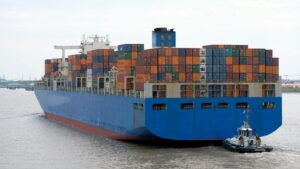In the ever-evolving world of global commerce, warehousing is a cornerstone for successful supply chain management. For companies aiming to expand operations in Southeast Asia, particularly in Malaysia, leveraging advanced warehousing solutions is essential. This guide explores the nuances of warehousing in Malaysia, offering business leaders and digital marketers the knowledge needed to make informed decisions that boost their logistical capabilities. We’ll cover the significance of warehousing, emerging trends, current challenges, and future prospects for the industry. We’ll also explain why TNLHS is the ideal partner for businesses seeking top-tier warehousing solutions in Malaysia.
The Strategic Importance of Warehousing in Malaysia
Warehousing is more than just a storage facility; it plays a strategic role in logistics that directly affects cost efficiency, delivery speed, and customer satisfaction. Malaysia’s warehousing industry acts as a key hub, thanks to its strategic position within Southeast Asia, offering numerous advantages to local and international businesses. Understanding the importance of effective warehousing can unlock growth opportunities and improve customer engagement.
Key Benefits of Warehousing
- Cost Efficiency: Centralized warehousing allows businesses to consolidate inventory, thereby reducing transportation costs and benefiting from economies of scale. Efficient warehousing also lowers costs related to managing fragmented storage solutions.
- Enhanced Customer Service: A well-managed warehouse supports faster and more accurate order fulfillment, leading to shorter lead times and higher customer satisfaction.
- Risk Management: Warehouses provide a secure environment to minimize risks like damage, theft, or spoilage. This risk mitigation is especially crucial for perishable goods and high-value items.
- Scalability: Warehousing solutions can be scaled to match the needs of a growing business, allowing smooth inventory expansion without disrupting operations.

Strategic Location Advantages
Malaysia’s position in Southeast Asia provides significant advantages for warehousing and distribution. Its proximity to major shipping routes and access to the ASEAN market allow businesses to efficiently expand their reach. Additionally, Malaysia’s well-developed infrastructure, including ports, highways, and railways, enhances its capacity as a key logistics hub in the region.
Why TNLHS is the Right Choice for Warehousing in Malaysia
When it comes to warehousing in Malaysia, TNLHS stands out for its commitment to efficiency, advanced technology, and customer-centric services. TNLHS provides end-to-end warehousing solutions that are tailored to meet the unique needs of businesses of all sizes. By leveraging cutting-edge Warehouse Management Systems (WMS), temperature-controlled storage options, and a team of skilled logistics professionals, TNLHS ensures that all your storage, inventory, and distribution requirements are met with precision and care.
Their state-of-the-art facilities are strategically located, which translates into faster deliveries and lower logistics costs. TNLHS also places a strong emphasis on sustainability, adopting green warehousing practices that reduce environmental impact while enhancing operational efficiency. By partnering with TNLHS, businesses can achieve improved inventory management, reduce overheads, and provide faster service to their customers.
Trends Shaping Warehousing in Malaysia
The warehousing landscape in Malaysia is transforming due to advancements in technology and evolving consumer expectations. Below are some key trends that are reshaping the industry:
Automation and Robotics
Automation and robotics are increasingly becoming necessities rather than trends. Systems like Automated Storage and Retrieval Systems (AS/RS) reduce manual intervention and boost productivity. By employing robots for repetitive tasks such as sorting and packaging, businesses can significantly reduce labor costs and improve operational accuracy.
Real-World Application: A major e-commerce retailer in Malaysia adopted robotic automation, reducing order processing times by 30%. This advancement allowed the company to efficiently manage high order volumes during peak seasons, resulting in improved customer satisfaction and increased sales.
Smart Warehousing with IoT
The Internet of Things (IoT) is revolutionizing warehousing through smart technologies. IoT sensors provide real-time data about inventory levels, equipment status, and storage conditions. These insights enable proactive decision-making, efficient resource management, and enhanced inventory control.
Real-World Application: A Malaysian logistics company implemented IoT sensors in their cold storage facilities to monitor temperature and humidity levels. This not only helped comply with food safety standards but also optimized energy usage, minimizing costs while preserving product quality.
Green Warehousing Practices
Sustainability is increasingly crucial in modern warehousing. Green practices, such as using renewable energy, recycling, and incorporating energy-efficient technologies, are gaining ground in Malaysia. These initiatives help reduce environmental impact while also cutting operational costs in the long term.
Real-World Application: A leading warehouse company in Malaysia installed solar panels on its facility rooftops, meeting 40% of its energy requirements. This sustainable move significantly reduced electricity costs and attracted environmentally-conscious clients, giving the company a competitive edge.
Warehouse Management Systems (WMS)
Warehouse Management Systems are integral to modern logistics. WMS solutions help businesses manage inventory efficiently, optimize storage, and streamline the order fulfillment process. By leveraging a WMS, companies can track inventory in real-time and enhance operational accuracy.
Real-World Application: By deploying a WMS, a major Malaysian retail chain improved its order accuracy by 25% and optimized inventory levels, reducing instances of overstocking and minimizing holding costs.
Top Warehouse Companies in Malaysia
Several companies are leading the warehousing sector in Malaysia by setting benchmarks in logistics excellence. These companies cater to industries such as e-commerce, retail, and manufacturing:
- Tiong Nam Logistics Holdings Berhad: With decades of experience, Tiong Nam offers integrated warehousing services, including bonded warehousing, temperature-controlled storage, and just-in-time inventory solutions. Their state-of-the-art facilities ensure optimal storage conditions.
- DHL Supply Chain Malaysia: DHL offers end-to-end supply chain solutions in Malaysia, including warehousing services like inventory management and order processing. Their strategically located facilities support efficient distribution across the region.
- YCH Group: Known for innovative logistics solutions, YCH Group supports seamless supply chain operations with advanced tracking systems and warehousing facilities tailored to various business needs.
- GDEX Berhad: GDEX offers warehousing solutions that leverage advanced technologies to boost operational efficiency. Their services include cross-docking, inventory management, and multi-modal transport, making them a reliable logistics partner.
Addressing Challenges in the Malaysian Warehousing Sector
Despite its growth, the warehousing industry in Malaysia faces certain challenges:
- Rising Operational Costs: Increased demand for warehousing space has led to higher rental and operational expenses. Companies must adopt innovative solutions like space optimization and energy-efficient technologies to control costs.
- Labor Shortages and Skill Gaps: There is a shortage of skilled labor, particularly in roles requiring technical expertise in automation and IT. Businesses need to invest in workforce training and collaborate with institutions to bridge the skills gap.
- Regulatory Compliance: Warehousing companies must adhere to various safety, environmental, and labor regulations. Investing in compliance management systems can help mitigate risks and avoid penalties.
- Infrastructure Connectivity Issues: While Malaysia has robust infrastructure, challenges remain in rural areas. Continued infrastructure improvements are essential to support further warehousing growth.
Future Prospects of Warehousing in Malaysia
The future of warehousing in Malaysia is set for growth, driven by the e-commerce boom, technological innovation, and regional trade agreements.
- E-commerce Integration: As e-commerce expands, warehouses must adapt to faster order processing, efficient returns management, and seamless last-mile delivery. Investments in technology and close collaboration with e-commerce platforms will be key.
- Expansion of Cold Chain Logistics: The demand for temperature-sensitive products is rising, particularly in pharmaceuticals and food. The expansion of cold chain logistics will ensure the safe and efficient distribution of these products.
- Digital Transformation: The adoption of digital technologies like blockchain, AI, and big data analytics will enhance transparency and efficiency in warehousing. Companies that embrace these innovations will thrive in an increasingly competitive market.
- Regional Trade Agreements: Malaysia’s participation in agreements such as the CPTPP and RCEP will open new markets, driving the need for more robust warehousing and logistics services to support expanding trade opportunities.
Conclusion
The warehousing sector is integral to Malaysia’s logistics infrastructure. Understanding the sector’s dynamics is essential for optimizing supply chains and achieving high customer satisfaction. By leveraging advanced warehousing solutions, embracing technological trends, and addressing current challenges, businesses can boost their operational efficiency and scalability. As the industry continues to evolve, those who stay proactive and innovative will be best positioned to capitalize on the opportunities within Malaysia’s growing warehousing landscape.
TNLHS is well-equipped to meet these challenges and drive your business forward. By partnering with TNLHS, companies can benefit from end-to-end warehousing solutions, advanced technology integration, and a commitment to sustainability—factors that are critical in achieving logistical excellence in today’s competitive environment. Whether you’re looking to enhance your warehousing capabilities or explore new opportunities in Malaysia, TNLHS is the partner you need for success.
Related Readings
- Freight Services in Malay: What You Need to Know
- All You Need to Know About Malaysia Cargo and Trucking Services
- Logistics Near Me: How to Find the Best Logistic Services in Malaysia
- Top Freight Forwarding Companies in Malaysia
- Air Freight Solutions in Malaysia: A Complete Guide
- Why Choose a Forwarder in Malaysia? A Guide for Businesses
- Finding the Best Logistic Company in Penang and Selangor
- Top 10 Logistic Companies in Malaysia: Who Stands Out
- Warehouse Services in Malaysia: Finding the Best Warehouse Near Me
- What is a Forwarding Agent and Why You Need One in Malaysia




